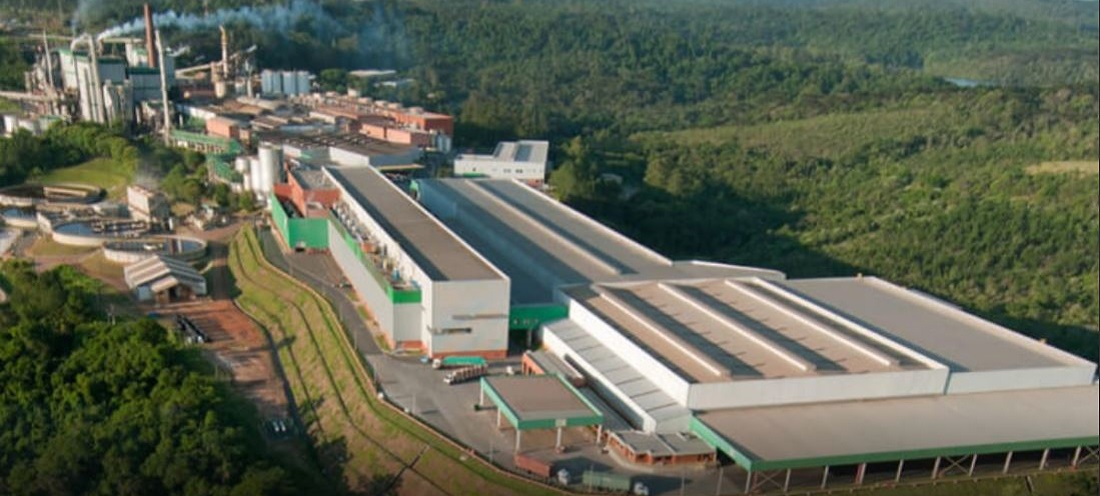
Klabin terminal with capacity for 5,000 40ft containers
Sep, 15, 2021 Posted by Sylvia SchandertWeek 202136
On September 15, Klabin inaugurated a new container terminal to transport new production. The terminal is on its way to becoming the largest non-refrigerated container operation in the country, and the third largest overall, with a capacity of 5,000 40-foot containers per month, once a second machine that is part of the company’s expansion project comes on stream.
Built in Ortigueira (PR), as part of the Puma II project, it received an investment of R$ 300 million, including handling equipment, railway assets and civil works. “The terminal is part of a great logistical solution to support Klabin’s expansion in Paraná”, explains the director of Operational Planning, Logistics, Supplies and Information Technology, Sandro Ávila.
Klabin is investing R$ 12.9 billion in Puma II and already had a considerable volume of pulp and paper to be shipped from Paraná – Monte Alegre, Puma I and now Puma II – to clients in Brazil and in more than 80 countries. With the expansion, there will be 3.5 million tons of products to be handled per year, of which 2.2 million will be exported.
The best alternative, says Ávila, was to centralize all the cargo that could be shipped by container in one large terminal, covering an area of 120,000 square meters, and transport it to Paranaguá by rail. At the same time, it was possible to expand rail transport to the port, where the company currently has a concession for two terminals, replacing the use of highways for export paper cargoes originating in Monte Alegre.
The project was developed in partnership with Brado Logística, a subsidiary of Rumo that will transport the cargo by rail, and with TCP (Terminal de Containers de Paranaguá), which will operate the new terminal. In all, to meet its logistics needs in Paraná, Klabin invested in 11 locomotives and 766 wagons, including a platform for container and general cargo.
According to Ávila, the fact that Klabin has annual contracts for transport via container, avoids exposure to the spot market and operates in a hybrid way – the company can combine paper loads with cellulose in bulk transport – thus reducing the impacts of the global logistics crisis. “The fact that we operate in a hybrid way allows us to decompress the container operation at a difficult time, but there are challenges”, says the executive.
Source: Valor Econômico
To read the full original article, visit the link:
-
Ports and Terminals
Jan, 16, 2020
0
Rio Grande do Norte port authority posts positive results after four decades
-
Ports and Terminals
Nov, 22, 2021
0
DOCAS/PB publishes bid notice for the implementation of the Cabedelo Truck Regulation Yard
-
Ports and Terminals
Oct, 03, 2023
0
Port of Itajaí operator selection takes unexpected turn as top bidder disqualified
-
Ports and Terminals
Mar, 07, 2024
0
Brazilian Alliance for Port Decarbonization Launched at Intermodal 2024

